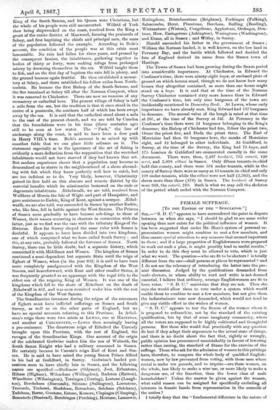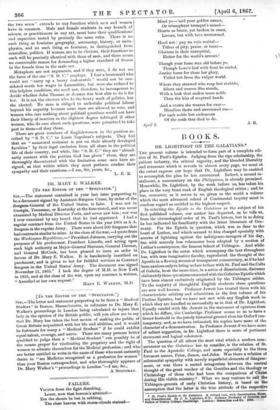the two sexes" extends to any function which men and
women have in conimon. Male and female students in any branch of science, or practitioners in any art, must have their qualifications and capacities tested by precisely the same rules. There is no such thing as feminine geography, astronomy, history, or meta- physics, and no such thing as feminine, as distinguished from masculine, politics. If women are to be electors, their functions as such will be precisely identical with those of men, and there seems no conceivable reason for demanding a higher standard of fitness in the female than in the male sex.
Metaphors are not arguments, and if they were, I do not see the force of the one "S. 1). C." employs. I fear a housemaid who could not "carry up a heavy coal-scuttle" would not be con- sidered worth her wages in Lancashire, but were she reduced to this helpless condition, she need not, therefore, be incompetent to decide whether John Thomas or Jeames was best able to do it for her. It is not the electors who do the heavy work of politics, but the elected. No man is obliged to undertake political labour beyond his capacity because some men are allowed to vote, and women who care nothing about political questions would not have their liberty of inaction in the slightest degree infringed if other women, who do care about such questions, were permitted to take part in them—if they chose.
There are great numbers of Englishwomen in the position as- cribed by "S. D. C." to Louis Napoleon's subjects. They feel that an "unnatural restraint is put on their already developed faculties" by their legal exclusion from all share in the political life of their country, and while, like "S. D. C." they are "abund- antly content with the portion God has given" them, they are thoroughly discontented with the limitation some men have as- signed, as that within which they must perforce confine their sympathy and their exertions.—I am, Sir, yours, &c., L. E. B.































 Previous page
Previous page